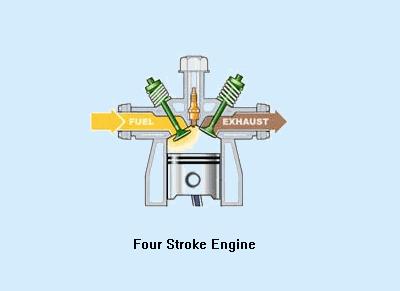Motor Scooters: The Advantages of Scooters
Site Map
What's New
Features
Scooters from Amazon.comYes Man, Scooters in Film
Larry Crowne and scootering
Helmet Free scootering
Scooters in a failing economy
Scooter Economy
Scooter ROI Analysis
Scooter pays for itself
Types of Motorscooters
Why ride a scooter?
Motorscooter FAQ
Buying Scooters Online
Join Our Mailing List
Recommend this site
Scooter Inspiration
Scooter EconomyMotorscooter Advantages
Motorscooter Disadvantages
Motorscooter Books
Motor Scooter Poetry
Business Scooter Travel
Motorscooter Posters
Motorscooters in California
Scooting in the UK
Green Scooting in China
Scooting in Italy
Motorscooters in Iraq
Motor Scooter History
The Ice-Cream Scooter
Pets and Motorscooters
RVs and Motorscooters
Gas vs. Electric Scooters?
Put-putting Pleasures
Recommended Scooters
Scooter Culture
Larry Crowne (film)
Dating and Scooter Culture
Motorscooter Freedom
Motor Scooter Image
Scooter Lib
Back to School on a scooter
Motor Scooter Music
Motorscooter Camping
Types of Motorscooters
Classic Motor ScootersItalian Motor Scooters
The Vespa Motorscooter
The Aprilia Motorscooter
Falcon Electric Scooters
50cc Motorscooters
Kymco Motorscooters
GT Chaunl Scooters
Chinese Motor Scooters
TANK Motorscooters
The RoadRunner Scooter
Roketa Motorscooters
The I-scooter
Moped Scooters
Mopeds
Scooter Choices
Best Scooter DealsThe Performance Scooter
The Luxury Scooter
The Minimalist Scooter
The Classic Scooter
The Basic Scooter
The I-scooter
The Electric Scooter
Stand-up Scooters
The Mobility Scooter
Used Motorscooters
California Legal Scooters
Toy Scooters
Practical matters
Trouble starting a scooterScooters and the Environment
Scooter Return On Investment Analysis
Motor Scooter Repair
The Scooter Commute
Scooter Repair Shops
Scooter Replacement Parts
Vespa Repair
Scheduled Maintenance
Fuel Efficient Driving
Essential Scooterist Kit
Passengers on a Scooter
Motor Scooter parking
Using the Kick Starter
Motor Scooter Batteries
Motor Scooter Stands
Rotating a Scooter
Cargo Storage Issues
Chinese Scooter Alarms
Scooter Roadside Assistance
Affordable Insurance
Scootering in groups
Motorscooter safety
Motorscooter SafetyDriving a Motorscooter
MSF Manual: Your Scooter
Scooters and Potholes
Important, before you drive
Motorscooter Helmets
All-weather Scootering
The Oily Path of Safety
Motorscooter Journal
Motorscooter JournalOff-highway scooter routes
The Scooterdoc
Scooter Choice Ethics
India Shuns Scooters
Left-handed Motorscooters
Other Types of Scooters
Mobility ScootersScooter-inspired Vehicles
Electric Motorscooters
The Three-wheel Scooter

Vespa Service In
Southern California
Motorscooters and the Environment

Commuting with a minimalist scooter instead of an SUV produces a gas and emisssions reduction of close to 90%. Of course, contrasting bigger scooters with smaller cars produces figures that are less impressive, and, unless one uses an electric scooter or another alternative fuel, fossil fuel is still being used and greenhouse gasses are still being produced. It may be many years before alternative fuels become enough a part of the US driving scene to be a comfortable alternative and, though we hope that switch will come sooner rather than later, as long as fossil fuel dominates, motorscooters are certainly an excellent way to reduce fuel usage and emissions.
Although some efforts are being made to produce good alternative fuel motorscooters (See The Yamaha hydrogen fueled FC-AQEL), we are still waiting for something that is actually in production, let alone something reasonably priced. We feel It is not enough to drive an eco-friendly vehicle as serious ecological impact can only happen if there is overwhelming acceptance of benign transporation solutions. Universal access to cheap, reasonably well made and well supported motorscooters could possibly inspire a critical mass move that could have a significant positive ecological impact. The scooter is clearly the easiest first vehicle to acquire (See Motorscooter Freedom) and clearly the most economical (See Motorscooter Economy) to drive and the stage is thus set for a fad that could be of great benefit to all living things.
Unfortunately, acceptance takes time.
Since 1985, the average weight of passenger vehicles has continued to climb, and of course at the same time, the mileage of the behemouths has gone down. Pushing around massive steel structures easily requires ten times as much power as it would ideally take to move just passengers and cargo (See Fuel Efficient Driving) and of course, scootering is the nearest thing there is to pushing only passengers and cargo.
Bookmark this page to:

